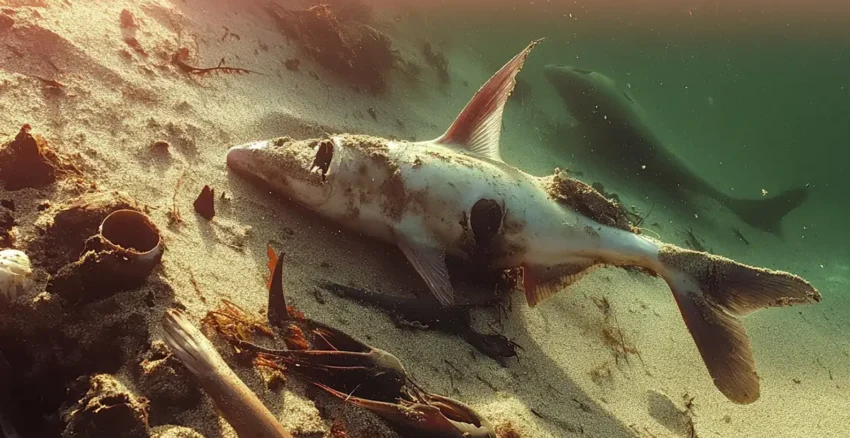Toxic Algae Kills 200+ Marine Species in Australia: What It Means for Ocean Life
A large outbreak of toxic algae off the South Australian coast has killed more than 200 marine species, including deep-sea sharks, octopuses, and even rare leafy sea dragons. Scientists and local authorities are calling it one of the worst marine die-offs in Australia’s recent history.

Since March 2025, a harmful algal bloom—identified as Karenia mikimotoi—has spread across more than 4,500 sq. km, roughly the size of Kangaroo Island. This algae produces toxins that damage the gills and organs of marine animals, leading to mass deaths.
Importantly, the algae also removes oxygen from the water, suffocating marine life at a large scale. So far, animals from more than 200 species have been found dead along beaches and underwater zones.
Why Did This Happen?
The main reason behind this sudden bloom is a marine heatwave. According to environmental experts, ocean temperatures in the region have been 2.5°C higher than normal since late 2024. Moreover, the sea has remained calm with little wind, helping the algae grow without interruption.
These climate conditions, unfortunately, are becoming more common due to global warming, raising questions about the future of ocean biodiversity.
Impact on Economy and Rare Species
Beyond the environment, this disaster is affecting people’s livelihoods. The oyster farming industry, especially around Yorke Peninsula, fears massive financial losses. Over 10 million oysters are now under quarantine, and early estimates suggest a $100 million hit to the seafood trade.
Even more concerning, some endangered species like the angelshark have been found dead—sparking global concern about marine conservation.
What Should People Do?
Authorities have advised the public to:
Avoid swimming in discolored or foamy water
Report dead marine life to local wildlife departments
Stay updated via official government and environmental websites
While the algae is not directly harmful to humans, experts say skin irritation and breathing issues could occur for those in contact with the affected water.
Though this event happened in Australia, Indians must stay alert. Our own coastal regions, such as Kerala, Tamil Nadu, and Gujarat, also face periodic algal blooms. With rising ocean temperatures due to climate change, these events could become more frequent in Indian waters, too.
This incident is a wake-up call for the world. It highlights how quickly nature can react to temperature shifts and pollution. Immediate action on climate change, marine pollution, and sustainable fishing practices is necessary to avoid more such disasters in the future.
Inflect.in — Your daily dose of stories that inform, inspire, and ignite curiosity. Follow us for more!
Inspire
Latest Post

AI in Healthcare: Smarter, Faster, and Accessible

Is Co-Sleeping Safe for Babies? Pros, Risks,

Pomegranate Benefits: Why Eating Anar or Drinking

Ma Yansong: Shaping the Future of Architecture

AI in Healthcare: Smarter, Faster, and Accessible

Is Co-Sleeping Safe for Babies? Pros, Risks,

Pomegranate Benefits: Why Eating Anar or Drinking








